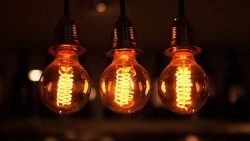-
Phone Number
-
Email Address

[titulo2]Does the consumer apply an adequate Efficiency Energetic? Even though we have a high rating Energy obtained from the Energy Certificate, it is not synonymous with savings.[/titulo2]
With adequate energy efficiency in our home we can save a lot of money at the end of the month, without having to make any outlay of money.
Energy saving and in our home depends on mainly of the design of the same, of the materials that the compose and the construction systems used; but also we can optimize and improve the practices we carry out inside, which also directly influence this saving.
Clean and defrost the refrigerator periodically, the layer Internal ice reduces performance. hold the gates of refrigerator open as short a time as possible, is where produce the greatest losses.
Completely turn off the TV, stereos, video, DVD and other electronic elements, since the position "stand by" also consumes electricity.
Do not put hot items in the refrigerator and defrost food inside it, so you will save energy. When you cook try to use the pressure cooker that is more efficient and always covers the pots to take advantage of the heat to the max.
Buy appliances with energy labeling from class A and in the case of refrigerators classes A+, A++, are more efficient. If you have a rate with discrimination time, use appliances in off-peak hours to reduce the electric company bill.
Do not use appliances at half load (dishwasher, washing machine...) or if you do, put the program specific wash for half a load, you will save energy and water.
Turn off the hob or oven a few minutes before finish cooking, so you will take advantage of the residual heat. Can save up to 25% of the energy consumption of the household appliances in the fridge and freezer, 35% in the kitchen, 60% in the washing machine and 25% in other small household appliances such as radio, television, video, DVD, etc
Do not cover the radiators with anything that could absorb the heat released. Choose double windows glass and use some type of sealant to cover gaps and leaks.
Do not abuse the air conditioning in summer or the heating in winter, it is sufficient that the temperature interior in winter is 20 ºC and in summer 25ºC.
Take advantage of the blinds and awnings to protect the house from the hours of maximum insolation in summer. in the time of winter do just the opposite, let in the heat of the sun.
Choose a high-efficiency boiler (Rating Four stars) if possible, although they are more expensive than the conventional, the savings in the long run is much greater.
Install a thermostat to regulate the temperature of the rooms, the heat needs are not the same in all the rooms or at all hours of the day.
Open the windows in winter at peak hours insolation, and in summer at night. you will have the house ventilated and take advantage of the environmental conditions by maximum to air-condition your home.
With all these measures, you can reduce consumption 30%.
Change conventional light bulbs for low-energy ones. consumption, you will notice the savings and its useful life is longer. Clean the dust accumulated in the luminaires frequently, since can decrease the effectiveness of lighting.
Use natural light whenever possible, it's a free and renewable resource. when you leave a room turn off the light, although if they are fluorescent lamps and you are going to turning them on again in a short time is not It is advisable to turn them off, since, although the necessary energy in starting this type of lamps (higher than in normal conditions) exists for a very few seconds, thus which is unrepresentative compared to several minutes of ignition, if it is the increase in the number of ignitions that significantly decreases the lifetime of the primer and the tube.
Depending on the activity being performed, the lighting needs will be different, so it is very useful to have electrical intensity regulators light, or several switches that allow the lights to be turned on. lights by zones.
With these simple practices, you will save up to 60% of electricity.
Install flow aerators or flow reducers on taps of sinks and shower is a good option to save, in addition You can install mechanisms that allow you to reduce the volume of discharge from the cistern.
If you take a shower instead of a bath and turn off the tap while you soap, you will spend only a third part of water.
Whenever possible, do not wash dishes by hand, use the short program of the dishwasher. to wash food use a container with water and not directly the stream of water, then you can use this water to water the plants. If your house has a garden, water at the hours of less heat to prevent water from evaporating.
Don't keep the tap running while brushing your teeth or you shave and make sure it stays closed, because a dripping can mean 50 liters of water lost per day.
By applying these simple tips you can achieve savings of 30%.
From Home Repair Care